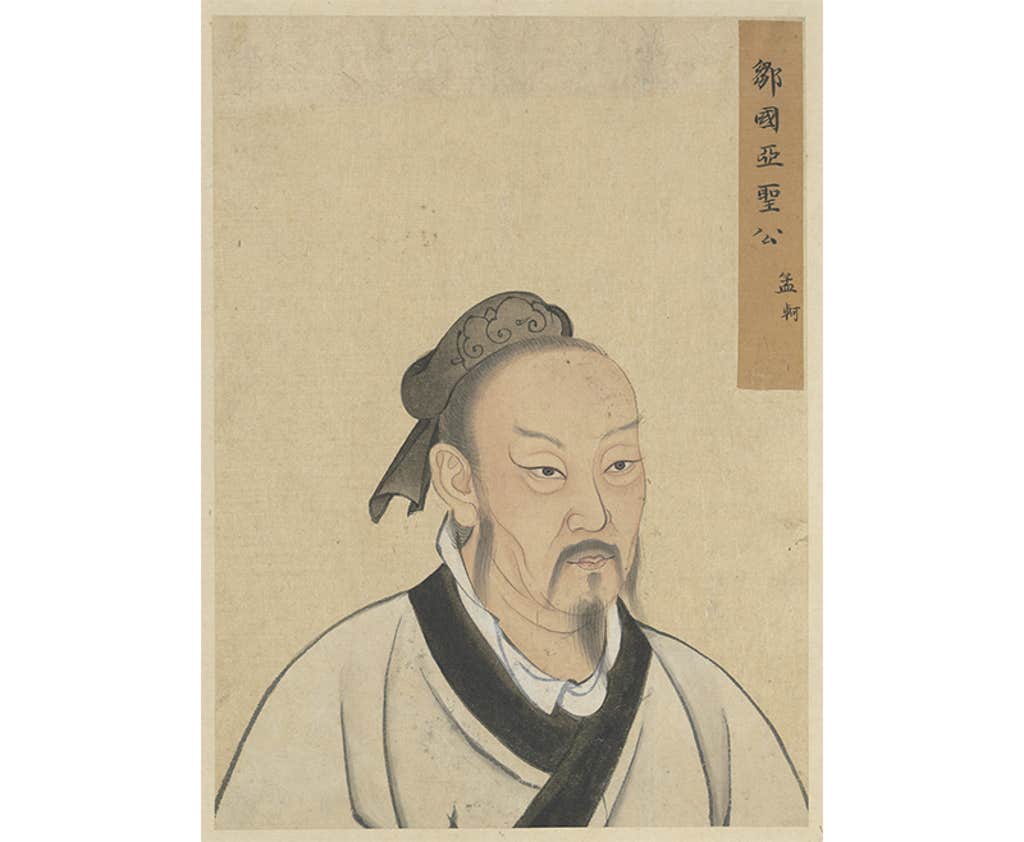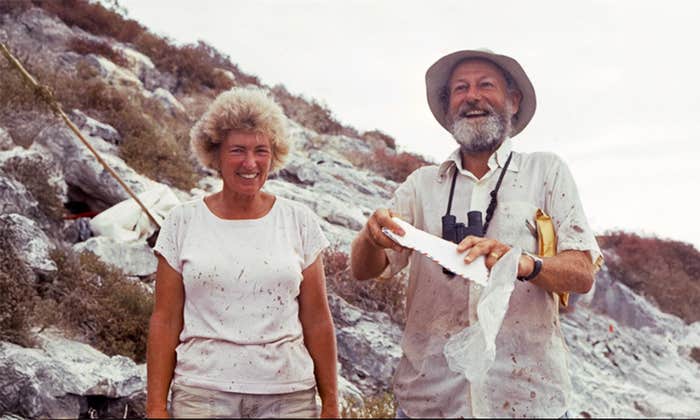To do philosophy, you don’t need expensive labs or equipment. You don’t need a huge team. You can do it all by yourself. The downside is that philosophers are often lonely. Reading in solitude while wrestling with your own thoughts is difficult. We do discuss and debate our ideas with others at conferences and symposia, but these peers, invaluable as they are, are bounded by many of the same constraints we are, living and thinking in our own brief historical moment. To overcome this myopathy of the mind, I stumbled upon an unexpected hack: not just reading the ancients, but becoming friends with them.
The medieval Japanese Buddhist philosopher Kenkō described this practice as follows in his free-flowing brush style: “The pleasantest of all diversions is to sit alone under the lamp, a book spread out before you, and to make friends with people of a distant past you have never known.” The medieval Italian poet and philosopher Petrarch not only wrote letters to his living friends, but also to the dead, such as Cicero, who lived 1,400 years before. In her biography of Rahel Varnhagen, an 18th-century German writer and salon host, Hannah Arendt called her “my closest friend, though she has been dead for some hundred years.”
I interrogated the philosopher, and sometimes, in my mind, he answered back.
Once you spot these friendships with the ancients, you start to see them everywhere (I wrote more about them recently in the Journal of the American Philosophical Association). What do philosophers get out of not merely reading old philosophy texts but also befriending their authors? How does one even do this, given that the other person is, well, dead?
About 10 years ago, I was unaware of this practice, and I could not foresee how it would transform the way I think. I was a proper academic philosopher, writing in the style and developing the kinds of arguments that were suited for mainstream philosophy journals—for example, on whether the evolutionary origins of moral or mathematical beliefs cast doubt on these beliefs. My citations to old philosophical texts were few and sparing. I used them mainly to support my arguments. I wondered whether people like Plato or Nāgārjuna could help me at all, given that their cultural contexts (ancient Greece and ancient India, respectively) were so different.
This changed when I read the Mengzi, a Chinese philosophy book from the Warring States Period (around the fourth century B.C.) about ethics, etiquette, and politics, with sayings and dialogues attributed to the philosopher Mengzi (also Latinized as Mencius). I read this book because I wanted to diversify my syllabus and to introduce some Chinese philosophy in my ethics class at Oxford Brookes University (where I was a senior lecturer at the time). I wasn’t prepared for how much this work would blow me away. Maybe I was under the influence of stereotypes of Chinese philosophy as collections of ambiguous sayings by sage old men with wispy beards. Instead, I found a deeply challenging picture of humanity.
Mengzi offers the thought experiment of a child who is about to fall in a well. He writes that anyone would be alarmed at the sight, not because of ulterior motives—such as praise from the parents if one were to help the child—but because of genuine altruistic motives. Mengzi held that we all have within us emotional beginnings (or “sprouts” as he calls them) of virtue. For example, the emotion of compassion is the sprout of the virtue of benevolence. We are all born with these sprouts the way we are born with four limbs. To become a good person, one must nurture the sprouts the way one nurtures young plants.
I fell in love with Mengzi, particularly because it was the first ethics text I read that gave me helpful advice to cultivate my own virtues. Mengzi tells you that you have all the resources to be a good person within you. You don’t need to abide by ethical systems dreamt up by others, the sprouts of goodness are already there. From that starting point, it’s just slow and gradual practice. For example, if I lost my temper yesterday, I have an opportunity not to do so today. If my comments on the work of a student have been too harsh, I can tell them that there were also many good things in the work and be gentler with students next time.

Up until that point, I saw philosophical papers as 9,000-word sized self-contained publishable units where you cite philosophers to support your arguments, or to engage with their arguments to critique them. But I didn’t truly love any philosophical text, not the way I can love a piece of music, a novel, or a painting. That changed with Mengzi. Mengzi transformed not only my view on human nature, but also how I engage with philosophical texts. He says that if you cannot find suitable friends among the living, then you should “ascend to examine the ancients. Recite their Odes and read their Documents. But can you do this without understanding what sort of people they were? Because of this, you must examine their era. This is how friendship ascends.”
What Mengzi says here is that to befriend ancient philosophers, we must immerse ourselves not only in their words but also attempt to do the same with the cultural context in which they lived and worked. That understanding is not one of an impartial scholar but of a friend. A friend knows where you are coming from and realizes why you hold certain views.
I tried this practice by talking to Mengzi in my mind. In my imagination, he looks more like a young C-drama actor than like the severe scholar who is featured in Half Portraits of the Great Sage and Virtuous Men of Old.
I asked him questions and requested his help in the interpretation of some of the more difficult passages in the Mengzi. This prompted me to read more about his era, the Warring States Period, when smaller states were invaded by larger ones. I interrogated the philosopher, and sometimes, in my mind, he answered back.
For example, I found him helpful when considering a tricky professional situation some years ago in which I was being urged to not give an invited talk because the organizer had made some remarks that sounded, as reported, transphobic. If I accepted and gave the talk, I would implicitly condone him. On the other hand, if I didn’t give the talk, I would cave to peer pressure without knowing all the details. What does Mengzi recommend? To give the presentation, I would be in line with the virtue of ritual, as it is awkward etiquette to decline a talk you have accepted earlier. However, I might be hurting the people who were upset or harmed by the remarks, which would not be in line with the virtue of benevolence.
I didn’t truly love any philosophical text, not the way I love a piece of music, a novel, or a painting
For Mengzi, situations like these require the virtue of wisdom. Wisdom is a kind of meta-virtue that requires that you weigh the dilemma carefully. In this case, I contacted people involved in the situation to learn more about it, and we reached a compromise that was acceptable to all, namely that I would give short remarks at the start of my presentation about how the state of trans philosophers in our profession could improve. This was also in line with the fourth Mengzian virtue, righteousness, where you try to use whatever platform you have to further the common good.
The great thing about Mengzi’s views on virtue is that you can mess up; it doesn’t mean you are a terrible human being. You can always try again. For example, if you have been an ungracious partner, you can try to be more gracious tomorrow. Unlike Scrooge in A Christmas Carol who can only get shocked into becoming a better person by ghosts and visions, it is possible to do so gradually, in the small observations and practices of everyday life. While you cannot undo past harms, it is never too late to prevent yourself from causing future ones.
If you ask Westerners whether we can improve by practice in such endeavors as playing the guitar, or tennis, or even writing, they will say, “of course!” But if you ask them if we can improve our virtue in this way, many will say no: Some people are simply born more virtuous than others or are otherwise made more virtuous by circumstances largely out of their control. But Mengzi thinks that you can practice your virtue by growing your sprouts. He likens cultivating your virtue with playing the board game Go. “Now, Go is an insignificant craft. But if one does not focus one’s heart and apply one’s intention, then one won’t get it.”
When you make friends with a long-dead philosopher, you don’t think of them in a detached, objective manner. That is, we better understand where they are coming from, and why they hold certain views. Though this doesn’t mean we let them off the hook.
In a June 1345 letter to his dead friend the Roman philosopher Cicero, Petrarch laments Cicero’s shortcomings, particularly his inability to live up to his own standards: “What good is there in teaching others, what benefit is there in speaking constantly with the most magnificent words about the virtues, if at the same time you do not give heed to your own words?” We can share our candid thoughts with our good friends.
Befriending a long-dead philosopher also helps us to understand ourselves better. It is an easy reflex to “cancel” any dead philosopher—write them and all of their work off part and parcel—because of some unsavory (racist, sexist, classist, etc.) views they held. It is more difficult to engage with their work, to understand it, while also recognizing that these views are elements of their work. This helps us to see ourselves as thinkers who may hold some flawed views, but who do this in a larger picture of humanity striving to better understand ourselves and the world in which we live. We are not so different from the ancients, and the problems they dealt with are similar to ours.
For example, many of us are forced, or greatly pressured by circumstances, to work for companies solely focused on profit, that are short-sighted, and even corrupt. Ancient friends such as Confucius and Mengzi considered this as an important dilemma: It is vital to know when to step away.
If you cannot find suitable friends among the living, you should “ascend to examine the ancients.”
With the climate spinning out of control, the fallout of a pandemic (and likely others in the making), and the rise of authoritarianism, I cannot help but feel doubts about Mengzi’s core view that human nature is good. By this, Mengzi did not mean that each individual human being is good. But he did believe that we are good by nature, the way it is in the nature of a duck to swim. Due to circumstances (for example, living in captivity without nearby water), a duck may never swim. Similarly, circumstances can make a nation’s actions devoid of virtue. But the nature of the people in those nations is to be good. What does this mean?
To better grasp this idea, I examined Mengzi’s era. His time, the Warring States Period, was one of unrest, epidemics, and violent conflict. He was an advisor to the ruler of Qi, helping to shape policy and foreign affairs. Yan, a neighboring smaller state, was weakened due to a succession crisis. The ruler of Qi asked if it was morally permissible to annex Yan (this was a common policy during the period). Mengzi advised that it was. However, he was horrified by how Qi’s ruler took the state, by looting and by killing huge numbers of innocent civilians. Mengzi resigned in disgust, even though he was unable to obtain another position. He was well aware of the depths to which humans can plunge, and yet, in spite of this, he still held that human nature is good.
A possible way to read this is to see his view of human goodness as aspirational. Having faith in the goodness of humanity is, as Martin Luther King, Jr. and other activists have demonstrated, an attitude that can help you to make the needle move in the right direction. Mengzi lived in desperate times. We, like Mengzi’s peers, may fervently wish to live in a more peaceful era. “So do all who live to see such times,” as Gandalf advises Frodo in Lord of the Rings, “but that is not for them to decide. All we have to decide is what to do with the time that is given to us.” This is what Mengzi did, and his view of human nature was crucial to this.
He arguably believed that it is part of human nature to aspire to be good. In one passage from the Mengzi, for example, a ruler asks the philosopher if he should be a king who rules by virtue, that is, by showing a good example and being benevolent, or rather if he should be content by ruling as a hegemon who uses realpolitik—using purely instrumental political means, even if not always above the board, much as Machiavelli prescribes—to achieve one’s goals. The ruler is worried that he isn’t good enough to be a virtuous king. “Can one such as ourselves care for the people?” he asks. Mengzi says simply, “You can.” He thinks the king is able to do this, because he showed compassion on earlier occasions, such as when he spared an ox that was led to be ritually slaughtered. If he can feel compassion for an animal, he should all the more be capable of empathizing with his subjects, who are human beings.
In another passage, Mengzi mentions the village worthies, the prominent people in the village everyone respects. Mengzi, by contrast, holds them in low esteem. When he is asked why he, like Kongzi (Confucius), views them with disdain, he replies that the village worthies settle for mediocrity: “Born in this era, we should be for this era. To be good is enough.” Mengzi thinks that with this mindset, the village worthies set the bar too low for themselves. They think that if you live in a time when the standards are low, it’s okay to do the bare minimum to be deemed virtuous.
What my conversations with my ancient friend Mengzi helped me to understand is that the norms and ideas about what being a good person is, and what a good life is, are not restricted to our time. We can be ambitious in what we hope and strive for, by reaching out to the ancients who continue to inspire us. This way, we can overcome the limitations of being born in our own era and can situate ourselves in a much bigger world, brimming with possibilities and with many voices of the past and present to guide us. ![]()
Acknowledgements: Many thanks to Bryan Van Norden and Johan De Smedt for their helpful comments on an earlier draft.
Lead image by Tasnuva Elahi; with images by Roman Samborskyi and vangelis aragiannis / Shutterstock
































